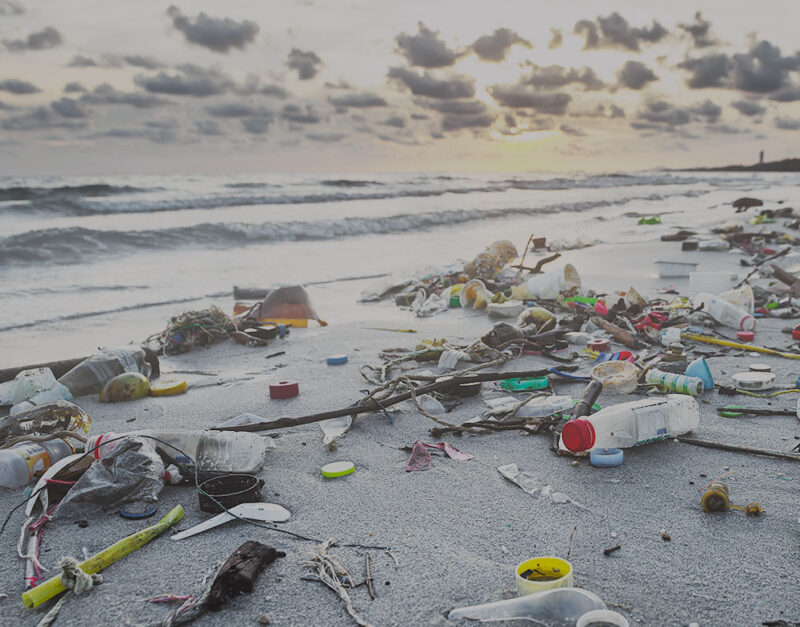 June 22, 2023
June 22, 2023 Many consumers are concerned about how pervasive plastic is in our environment. And health officials around the world say these concerns are warranted. Plastics and the chemicals used to create them have been linked with disruption of the endocrine system, reductions in immunity, and organ damage.
The lead author of the Lancet Commission on Pollution and Health, Philip Landrigan, said, “Plastic threatens human health at every stage of its production pipeline — from the extraction of the fossil carbon, oil and gas, that is plastic’s main constituent, to its manufacture, use, and disposal.” Pollution from using the fossil fuels used to create plastic threatens those who live, work, or attend school near factories. Residue from plastic used in cosmetics, food packaging, and other consumer products remains in our bodies. And plastic trash is a breeding ground for mosquitoes that carry serious diseases. Race and socioeconomic status also seem tied to plastic pollution, as factories and dumping grounds are more likely to be in lower-income countries or low-income and minority areas in higher-income countries.
Plastic and Benzene
One of the troubling chemicals involved with plastic is benzene. Benzene is used to create some of the chemicals used to make plastics, and it is highly toxic. Factories that use benzene can emit this chemical into the air near them. As a result, plastic production is projected to produce more environmental pollution than coal plants by 2030. Other sources of benzene exposure include auto emissions, tobacco smoke, off-gassing from consumer products, and incineration of plastic trash.
Immediate exposure to benzene can cause dizziness, confusion, vomiting, skin irritation, and even death. Over the long term, benzene has been linked to bone marrow issues, anemia, low birth weight, reproductive issues in women, leukemia, and other health problems.
Plans to Reduce Plastic Exposure
Four lawmakers recently introduced the Protecting Consumers from Plastics Act, designed to limit the use of plastics by reducing plastic production. Much attention has been focused on the problems with plastic pollution, and these Senators and Representatives decided to prevent the problem going forward by lowering the amount of plastic produced in the future.
The bill focuses on reducing the production of single-use plastics and foodware, which may be one of the big reasons humans have plastic in their bloodstreams and digestive system. The goal is to replace these disposable plastic items with reusable and non-plastic alternatives. Glass is one option, as is stainless steel. Disposable food packaging created using plant fibers instead of plastic are some other potential plastic replacements. The bill includes grant funds for water stations, dishwashing areas, and consumer information campaigns to help offset the costs of changing to different packaging and service options.
Additionally, the bill addresses environmental justice and racial equity issues by pausing new plastic production facilities until the industry does a complete assessment of its environmental justice impact. Once that is completed, the bill requires that new facilities not be built within five miles of homes, schools, and other specified community spaces.
One element of the bill is set to reduce the widespread incineration of plastic, called chemical recycling. Currently, melting discarded plastic and using it as fuel is considered a form of recycling plastic. However, consumers typically think of recycling as using plastic products to create new plastics instead of creating plastic from scratch, called plastic-to-plastic recycling. Chemical recycling turns the used plastic into oil and fuel and is simply a new way to burn fossil fuels, releasing hazardous chemicals into the environment, particularly in marginalized communities.
The plastics industry has said the bill will hurt American manufacturing and increase greenhouse emissions, mainly because alternatives to plastic are typically heavier and require more fuel to transport both after manufacture and once they are ready for consumers. However, the investments in funding new ways to store food could lead to developing products that are as lightweight as plastic without environmental and personal harm.
How We Help Victims of Benzene Exposure
Seek justice with the help of our experienced attorneys. Our Dallas, Texas, benzene law firm has battled corporate giants on behalf of individuals like you for 20 years, aggressively fighting to hold them responsible for dangerous chemicals and the personal injuries and cancers they cause. If you have suffered a catastrophic injury caused by dangerous products, we can help.


